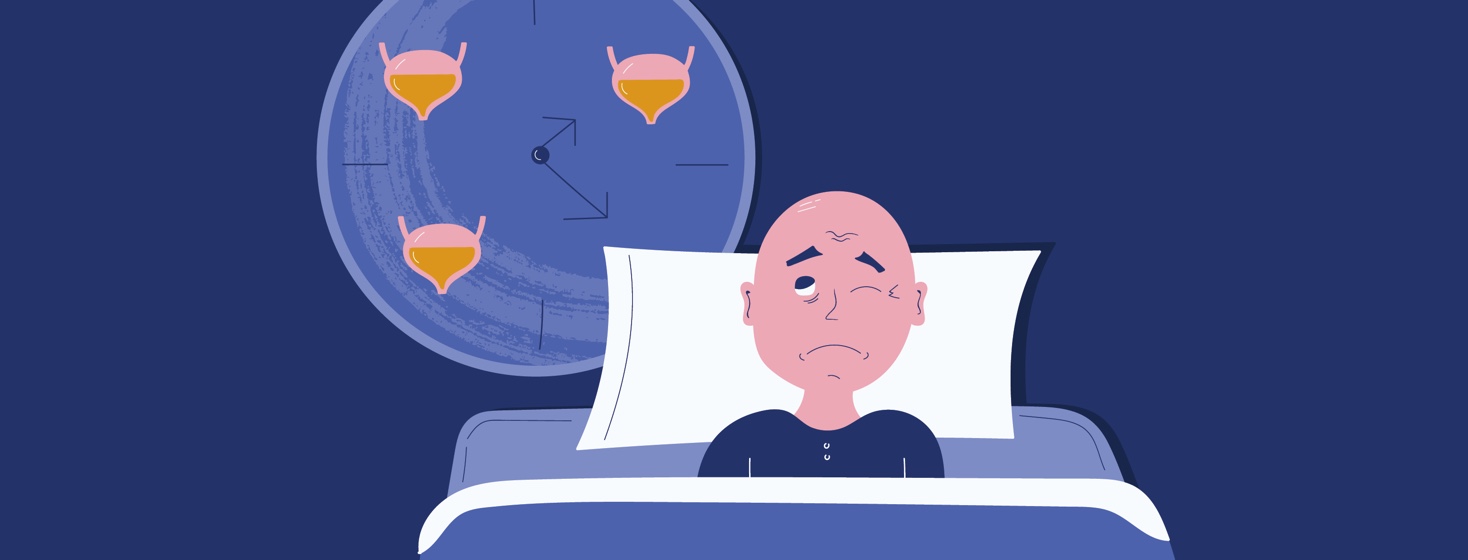The Problem of Nocturia
Bladder cancer causes dysfunction along the entire urinary tract. Unfortunately, those resulting and frequent trips to the bathroom — often to void just a small amount of fluid — don’t go away at night.
What is nocturia?
'Nocturia' describes frequent nighttime urination. It’s a problem for those diagnosed with bladder cancer, as well as for others with different medical conditions, for a few reasons.
About that frequent nighttime trip...
We’re meant to go to bed at night and stay there until we awaken. But for people with nocturia, this seems utterly impossible. For people who struggle with bladder cancer, this territory can be far too familiar and frustrating.
There are several reasons why getting up several times during the night can wreak havoc on someone who has bladder cancer.
- Your body needs at least 7 consecutive hours of sleep (which include all the sleep stage and cycles necessary for complete rest) in order to fight cancer. Fragmented sleep (in which you awaken frequently, for whatever reason) can create immune system dysregulation which might actually encourage tumor growth.1
- Broken sleep only exacerbates cancer-related daytime fatigue, leading to the need for naps or the problem of cognitive fog caused by poor nighttime sleep. It’s a vicious cycle: poor sleep at night leads to the need for naps during the day, which may make it harder to fall asleep at night… you get the picture.
- If having bladder cancer isn’t already a big enough dilemma, its emotional consequences — depression and anxiety, as well as a loss of confidence in one’s own body—can be amplified when you’re not getting enough sleep.2
- For those with bladder cancer who are less steady on their feet, more trips to the bathroom mean more opportunities for a bad fall. 3
- Urgent and frequent urination at night can result in incontinence that makes it hard to share a bed with a loved one or travel without fear of leakage. This can be a life-altering problem preventing you from living a normal life. Anxiety about this, by itself, might lead to sleeplessness.
Be aware of hidden sleep apnea
Sometimes the frequent urination that is a hallmark of bladder cancer may divert attention away from another problem which may exist simultaneously: obstructive sleep apnea (OSA).
Incontinence and frequent awakenings are two aspects of OSA which may go unresolved if they aren’t looked into.4
People with OSA are frequently awakened after periods when they cannot breathe properly; the brain releases stress hormones to signal them to awaken and take a breath. These stress hormones also stimulate activity in the bladder, leaving one with the feeling they need to urinate (sounds familiar?) when they may not actually need to.
Pertinent risk factors for OSA include carrying extra weight, specific facial structures which contribute to airway blockage (such as an overlarge tongue or tonsils), and large neck circumference.
When in doubt, check it out
As with any other undesirable symptom, you are best advised to share your concerns with your doctor. Poor sleep, by itself, can be reason enough to warrant a closer look, if only to rule out hidden sleep disorders which could complicate your cancer treatment and recovery.

Join the conversation